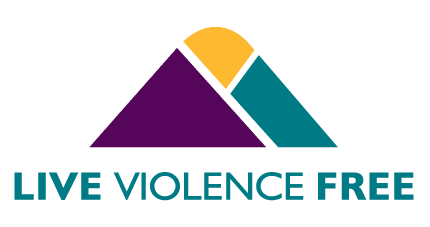Stalking
Boundries
POWER AND CONTROL
Stalking
No one deserves to live in fear.
People are stalked. Youth, ages 18-24, experience the highest rates.
Of victims are stalked by someone they know.
What is Stalking?
Stalking is a criminal activity that consists of the repeated and persistent following and/or harassing of another person with an intent to instill fear or injury. Stalking can take many forms: a stalker may follow someone around in their car or show up at their place of work or at their home. However, stalking can also take less obvious forms. It can happen online through repeated and harassing calls, messages, or texts, and it can happen through a third party working under the primary stalker.
You may also find stalkers will exhibit some of these behaviors:
Live Violence Free’s Youth Leadership Club is offered at South Tahoe Middle School and South Tahoe High School. Students attend weekly meetings and participate in monthly trainings and activities while learning the following skills:
- Leave unwanted items, gifts, or flowers.
- Constantly call you and hang up.
- Spread rumors about you via the internet or word of mouth.
- Call your employer or professor.
- Wait at places you hang out.
- Damage your home, car, or other property.
How Technology is Used by Stalkers?
One of the ways perpetrators stalk victims is through the use of technology. “Use of technology to stalk” is a broad term that is used to cover all forms of stalking that rely on technology.
Tech-based stalking can include:
- Persistently sending unwanted communication through the internet, such as spamming someone’s email inbox or social media platform.
- Posting threatening or personal information about someone on public internet forums.
- Video-voyeurism, or installing video cameras that give the stalker access to someone’s personal life.
- Using GPS or other software tracking systems to monitor someone without their knowledge or consent.
- Using someone’s computer and/or spyware to track their computer activity.
- Using other people as resources to investigate your life. For example, looking at your Facebook page through someone else’s page or befriending your friends in order to get more information about you.
Stalking and the Use of Power & Control
Stalking, like other forms of abuse, is a form of power and control. It’s a form of intimidation that makes the victim feel powerless, and it’s all about sending a message. For one, the stalker is sending the message that they have control over the victim’s very physical space and environment and that no matter where they go the abuser will be watching. But it’s also a direct, calculated threat to the individual’s safety and well-being, either through verbal threats or simply their physical presence conveying that they could choose to be violent if they wanted to; they hold all of the power and control.
Impact of Stalking on the Victim
Stalking also deeply impacts a victim’s relationships. Stalkers will often target family members, especially children. They may also threaten the victim’s job security by showing up at their place of work and harassing other employees or the victim’s boss.
Although not exhaustive, the following are some common effects victims of stalking experience:
- Feeling anxious or depressed.
- Feeling nervous, introverted, or feeling guilty.
- Isolated and inability to trust others.
- Becoming stressed.
- Denial, confusion, self-doubt, questioning.
- Inability to sleep – nightmares, ruminating.
- Helpless to stop the harassment.
Learn More
Additional Information on Stalking
The Stalking Resource Center
Love is Respect
Information on Technology Safety & Privacy
Technology Safety
LEARN MORE, DO MORE
Request a Presentation
This work is very fulfilling because we provide survivors with the resources and education so they are empowered to choose safety in their lives.
virtual
1st annual
One Conversation Conference
Live Violence Free Presents the 1st Annual Virtual One Conversation Conference on May 20, 2022.
The conference is focused on trauma & victim services. We encourage clinicians, therapists, social service professionals, victim advocates, educators, and students to attend.
Earn Continuing Education Credits & Register Today!
